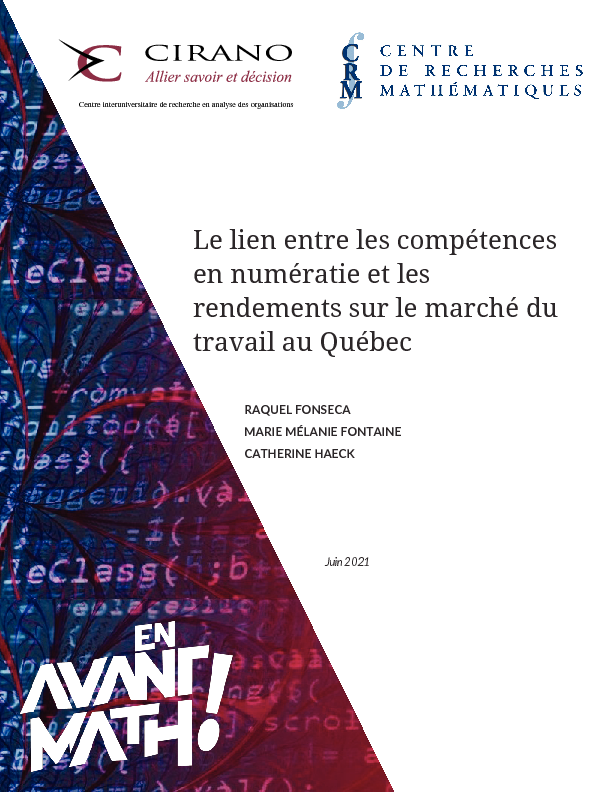Le lien entre les compétences en numératie et les rendements sur le marché du travail au Québec
The objective of this study is to estimate the relationship between numeracy skills measured in adulthood and workers' earnings in Quebec. To do so, we use confidential microdata from the Program for the International Assessment of Adult Competencies (PEICA) and the Longitudinal and International Adult Survey (ELIA). This research is primarily descriptive. First, we draw a socio-economic portrait of individuals according to their level of numeracy skills. Second, we measure the wage returns to numeracy skills in Quebec. Our results suggest that for active workers in the Quebec population, a one standard deviation increase in numeracy skills is associated with an average 21% increase in wages, a figure slightly higher than that estimated for the rest of Canada. We also document in detail the variations in these returns for adults with different socio-demographic characteristics. Specifically, we estimate wage returns to numeracy skills by age, gender, country of birth, parental education, industry and type of worker. Finally, in a third step, we assess the extent to which differentials in numeracy skills can explain wage gaps between men and women. Our results suggest that disparities in numeracy skills between these two groups can explain a significant portion of the gender wage gap. Indeed, nearly half of the gender wage gap is attributable to differences in numeracy skills. Compared to men, only 7.1% of women aged 16 to 64 in Quebec have high or very high numeracy skills compared to 14.3% of men.




